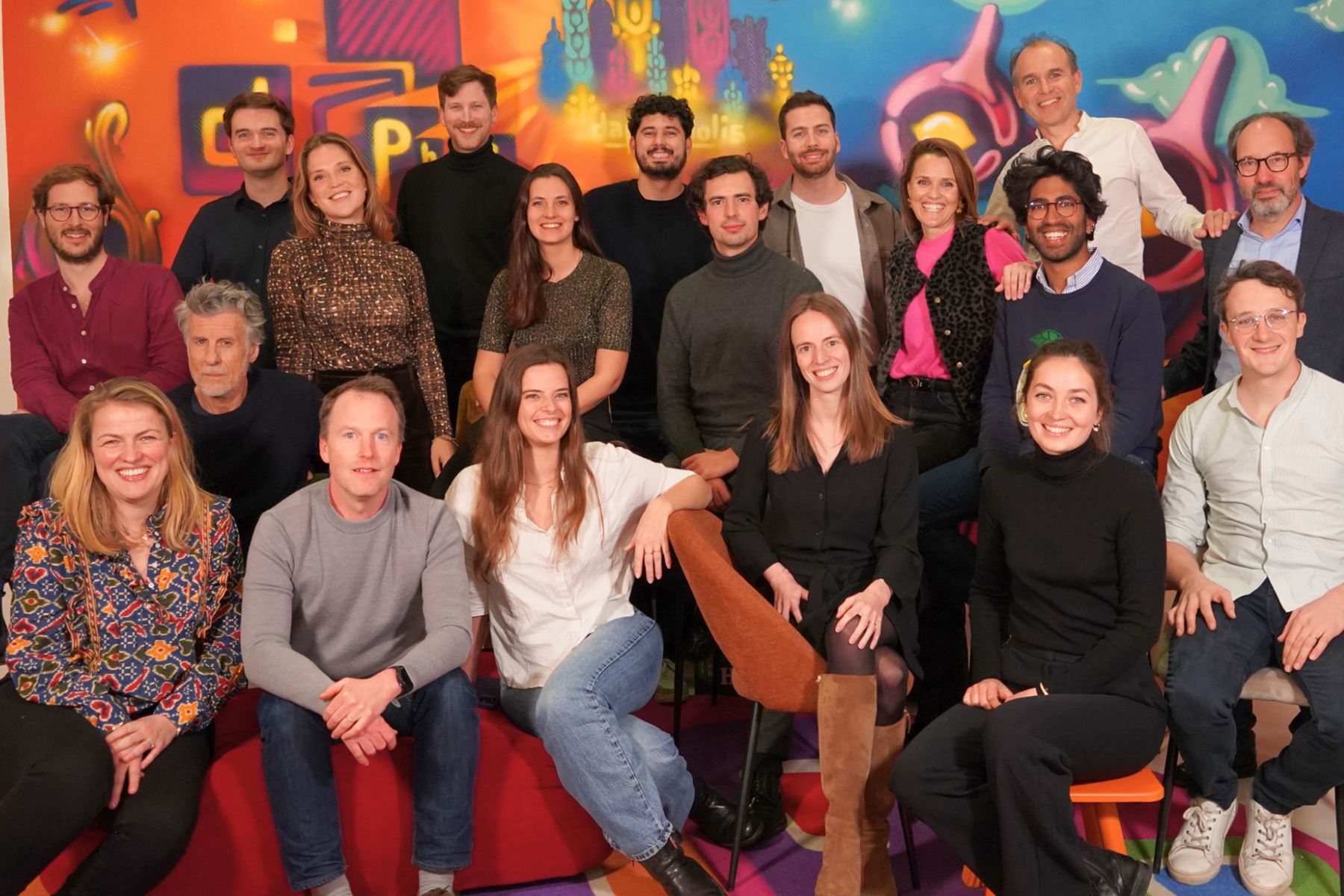'Funding is the limiting factor': Wastefront CEO on racing to build Europe’s first tyre-to-fuel plant
Oslo-based startup Wastefront turns used car and truck tyres into high-quality sustainable aviation fuel, and is already backed by some of Europe's biggest airlines. <br><br>In this exclusive interview with Impact Loop, its CEO Vianney Vales shares:<br><br>→ Why the company is raising a further €47m (£40m) in capital<br>→ How it plans to open its first plant in the UK in 2027<br>→ Which European destinations Wastefront is eyeing next<br>


What happens to car, bus and truck tyres when they're worn down and unsafe to use? Tyre graveyards are typically giant landfills, where tyres are either dumped or burned in cement kilns – neither of which are good for the environment. In fact, whole tyre disposal is banned in the EU and the UK, so millions of tyres are shipped out to countries with fewer restrictions, often in the Middle East, Africa and Asia.
Norwegian startup Wastefront is tackling the problem. It has developed a solution that transforms end-of-life tyres into sustainable aviation fuel (SAF) – giving both car manufacturers and airlines – two high-polluting industries – the chance to improve their environmental footprint. Wastefront says its SAF is expected to deliver lifecycle carbon emission savings of over 80% versus fossil fuels.
First UK plant on track for 2027
In February, the Oslo-based business announced it had officially commenced construction on its first tyre-to-fuel facility at the Port of Sunderland in northern England. Now, in an exclusive interview with Impact Loop, its CEO Vianney Vales confirms that the project is on track to open in the second quarter of 2027, processing around ten million tyres a year.
"Everybody is super thrilled," he says. "It's full throttle, really, until we start production."
The facility in Sunderland will use an advanced heating process without oxygen called pyrolysis technology. This breaks down the materials that make up the tyre. Part of this process creates an oil which can be refined into a fuel that can replace traditional jet engine fuels.
The company describes its system as fully circular, with gases generated in the process used to power the plant's operations. Another product of the processing is carbon black, which can be used to make new tyres or other items.
A race to secure more funding
Wastefront hasn’t publicly disclosed the total amount it has raised since it was founded in 2019. However the company says its funding has largely come from Nordic shareholders, and International Airlines Group (IAG), which includes Aer Lingus, British Airways, Iberia and Vueling and recently announced a £100m (€118m) investment.
These airlines have committed to reducing their emissions in line meeting the UK's SAF mandate, which came into effect in January. This requires at least 10% of all jet fuel used in flights departing the UK to come from sustainable stocks by 2030, rising to 22 percent by 2040.
Vales says that securing additional funding is a core goal for Wastefront right now. The firm needs to find a further €47m (£40m) in capital to fund the full construction process and ensure the company continues to evolve at pace.
"We need to build fast and to deploy fast, so that we keep the momentum," he says. "And linked to that, of course, is always the funding, because that is the limiting factor in terms of speed."
Still, Vales says a quarter of the new required funding has already been sourced – much of it from existing investors – and he's confident that new investors will come forward. Since the company has already overcome early fundraising, technological and regulatory hurdles to set up its first plant, the CEO believes this significantly lowers the risk for future investors.
"We've managed to create the value chain, from the tyre, to the technology, to the product," he says. "It's just a blueprint that we are installing in Sunderland, and we can replicate exactly the same copy elsewhere."
Funding is the limiting factor in terms of speed
Local impact and regeneration
Vales also hopes Wastefront's plant in Sunderland will serve as an inspiration for other towns and regions in Europe which are on a journey of urban regeneration and industrial transition.
The jet fuel factory is set to create more than 100 jobs in the industrial port of Sunderland, in north east England. Several car manufacturing plants – including Nissan – are already based there, but the area experienced industrial and economic decline in the late twentieth century and remains home to some of the UK's poorest neighbourhoods.
"The local support has been phenomenal," says Vales, adding that Wastefront is using a local construction team to build the plant, making a social impact by creating further work opportunities.
Nordic expansion plans
Vales himself hails from France and took over as Wastefront's CEO four years ago having previously worked for the company in project development. The SAF firm was founded six years ago by a group of Norwegian businessmen including serial entrepreneur Inge Berge, who previously launched Quantafuel, producing synthetic fuel and chemical products from non-recyclable plastics waste.
Earlier this year Wastefront announced it aims to operate four large-scale plants by 2030, and Vales tells Impact Loop that the first of these is likely to be in the Nordic region.
When we push for further information on which country it is most keen on (based on the fact Impact Loop's headquarters are in Stockholm!) he is tight-lipped, but hints that Sweden is definitely in the mix: "I can only say Scandinavia – at the moment... It might interest your [Swedish] readers at one point!"
Outside the Nordics, Vales says that expanding into other parts of the EU and the US are also part of the firm's vision.
Competing companies and impact narratives
While Vales' enthusiasm and Wastefront's narrative are compelling, the company is facing competition from rival sustainable air fuel startups, both in the UK and elsewhere in Europe.
These include Pyrum, a Zurich-based startup focusing on SAF fuels produced using their "aerobrew" technology, which converts renewable methanol into jet fuel. They are developing a commercial-scale SAF plant in Rotterdam, Netherlands.
Other key market players using various different SAF technologies include Neste (Finland), Shell (UK) and TotalEnergies (France). Greenergy, a British company which converts disused cooking oil into biodiesel for transport, has opened a biodiesel plant in Immingham in north-east England (although it announced last month that it is temporarily suspending its operations amidst concerns about its commercial viability).
Vales says he’s happy there is strong competition, both to help raise awareness of tyre-to-fuel and other SAF technologies, and meet what he hopes will be increasing demand for sustainable aviation fuels. "We welcome any other company that would do the same, because the field is enormous, and the markets are enormous, so that would only help bring credibility."
For now, Wastefront believes it offers a more competitive price point than many of its rivals, costing less than 1.7 times the price of regular jet fuel, and Vales points out that in the UK and much of Europe, buyers will recoup some of this by not paying carbon taxes. "It is still more expensive than jet fuel, but what really matters is [that it is] absolutely necessary to decarbonise aviation – it's not a 'nice to have' shift."
According to recent research by global analytics firm Markets and Markets, the sustainable aviation fuel market is currently estimated to be worth $2.06bn (around €2.28bn) and is set to experience significant growth over the next few years, with current predictions suggesting personal and business air travel is likely to rise rather than dip. Other factors include increasing aircraft production and fleet expansion, and the ongoing development of advanced fuel production technologies.
Addressing the critics
In today's impact landscape – as Impact Loop has reported – profit-based carbon-cutting businesses are increasingly coming under fire for being short-term "band aids" for the climate crisis. There are growing calls for more systemic changes in both industry and how we live our lives.
However, Vales refutes the idea that Wastefront is simply prolonging the norms of personal car ownership and frequent air travel (both of which will continue to contribute to global emissions, even if vehicles and planes themselves become more sustainable through electrification and SAFs).
When it comes to how people choose to travel, "we're not promoting anything", insists Vales. "We're just witnessing the enormous pollution and the environmental disaster that's happening and we're providing a solution."
Get full access to Europe's new platform for impact news
- Quality journalism, interviews, investor profiles and deep-dives
- Daily newsletter with top stories, latest funding rounds and roundup to keep you in the loop
Keep reading – get in the loop!
- Håll dig i loopen med vårt dagliga nyhetsbrev (gratis!)
- Full tillgång till daglig kvalitetsjournalistik med allt du behöver veta inom impact
- Affärsnätverk för entreprenörer och investerare med månatliga meetups
Fortsätt läsa – kom in i loopen!
- Håll dig i loopen med vårt dagliga nyhetsbrev (gratis)!
- Full tillgång till daglig kvalitetsjournalistik med allt du behöver veta inom impact
- Affärsnätverk för entreprenörer och investerare med månatliga meetups









